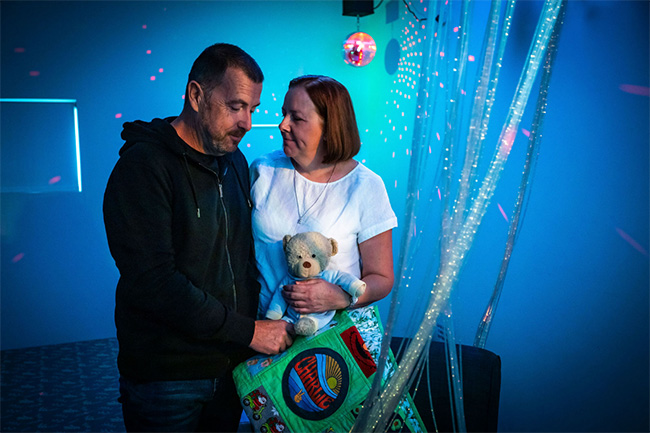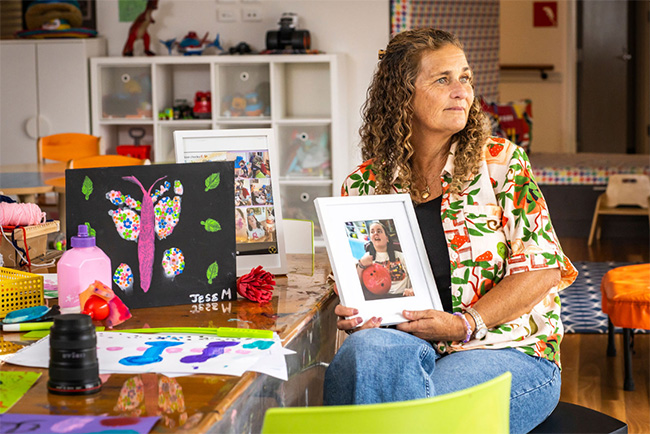Children’s hospice Hummingbird House helps break the silence on death and grief

Hummingbird House, Queensland’s only children’s hospice, is calling on communities to reduce stigma on death and grief as part of Dying to Know Day on 8 August — a national initiative encouraging open conversations about death, dying, and end-of-life planning.
With research 1 showing most bereaved people need consistent support from their community rather than mental health professionals, normalising conversations about death, grief and loss is an important part of the work Hummingbird House does.
Hummingbird House Family and Community Support Manager Elham Day said:
In many countries, death and dying have become highly medicalised. This means that death typically occurs in a hospital environment, away from community. As a result, community members have lost valuable skills and knowledge in knowing how to care for the dying, as well as how to support those grieving a loved one.
‘While medical advancements have vastly improved childhood mortality rates, this has also led to the loss of familiarity of knowing how to care for parents and caregivers when a child dies. Once again, the unfamiliarity with this often leads to a medicalisation of what is, in a broader sense, a deeply painful human experience, which was common to all our ancestors.’
To promote community capacity building, Hummingbird House connects with families and their employers, schools, sporting clubs to strengthen their ‘circle of care’ — the network of support that surrounds a family navigating grief.
'We often hear how returning to work particularly can be difficult, both for the person grieving but also for the employer who is wanting to offer support but might not know how. Similarly, schools can find it challenging to feel confident in communicating with children about something which often feels scary, unfamiliar and uncertain.'

Hummingbird House Community Development Worker Cara Doherty said, “Compassionate Communities is a global movement that encourages everyone to play a role in supporting people who are dying, caregiving, or grieving, through everyday acts of care and connection.
“The Compassionate Communities movement is gaining traction in Australia and can have significant benefits for grieving families and the community.
For most people, talking about death is confronting and uncomfortable. When talking about the death of a child those feelings are amplified.
For one family in the Bundaberg region, Hummingbird House provided support not only during their stays at the hospice in Brisbane, but also in their local community. Staff have been working with the school that the child and his siblings attend - helping staff navigate the complexities of caring for a child with a life-limiting condition and the anticipatory grief that can come with it.
The family also joined a local Hummingbird House group that connects families caring for a child with a life-limiting condition, creating a space for peer support, understanding and shared experience beyond health care settings.
The child’s father shared, ‘It’s all about connection - both coming to the family group and staying at Hummingbird House. No one’s journey is the same, but we’re not alone in this.’
With families already accessing so many services during their child’s life, being able to rely on support from their friends, families and colleagues rather than being referred to yet another provider can be incredibly comforting.
‘It also works both ways as family and friends wish to support but sometimes don’t know how. We can worry about saying the wrong thing or causing upset when in most cases bringing up memories of their child and particularly using their name is welcomed and appreciated,’ Cara said.
Dying to Know Day, held annually on August 8, is an Australian-led initiative encouraging open conversations about death, dying, and end-of-life planning to reduce stigma and support informed, compassionate choices.